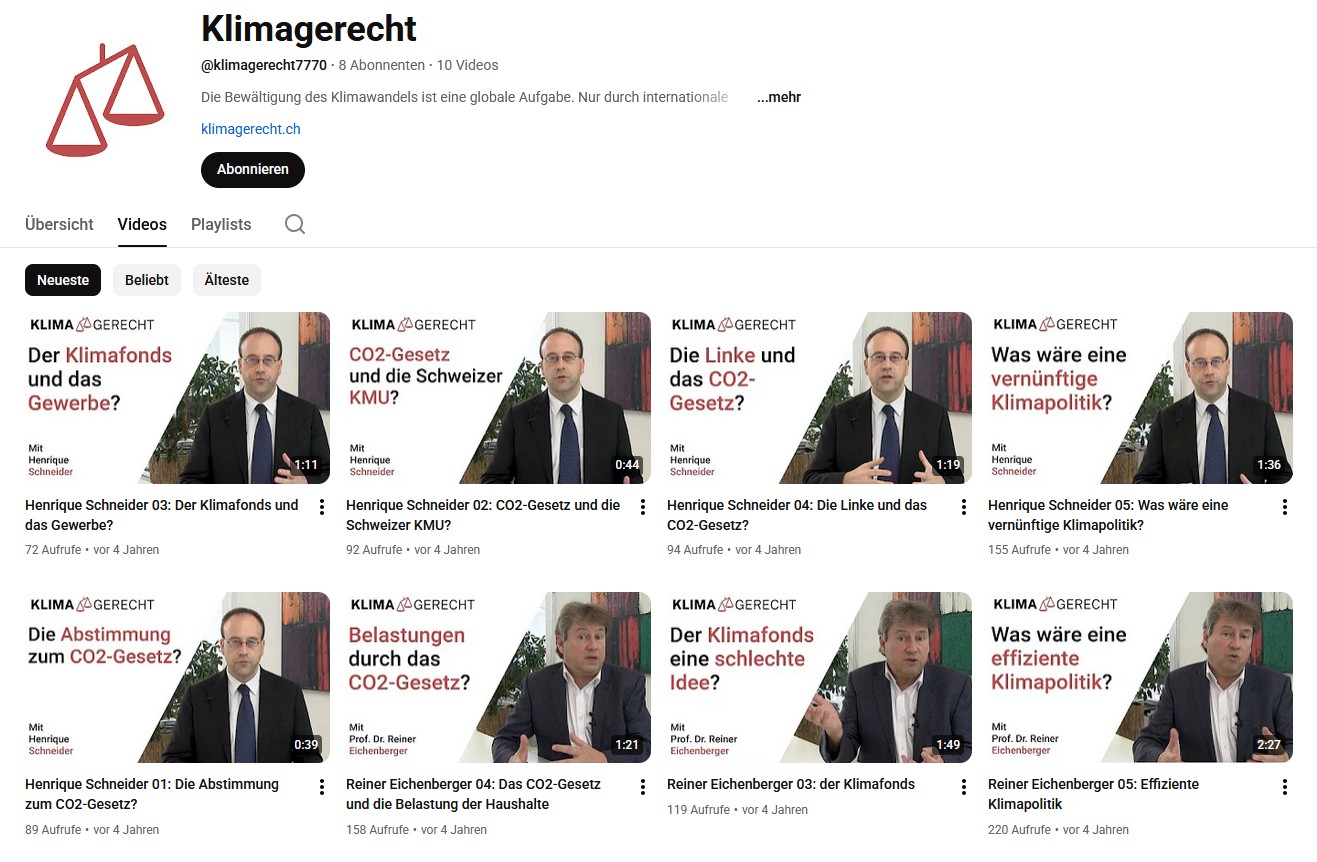Share post now
Research paper
How the oil lobby undermines the energy transition
27.10.2025, Climate justice
Switzerland's climate policy relies primarily on offsets abroad. How did this come about? The hidden answer is called Avenergy Suisse, as revealed by our investigation into its questionable practices.

When polluters shape climate policy: the oil industry campaigns against domestic climate measures while promoting offsetting abroad. Oil refinery in Cressier, near Neuchâtel (Switzerland). © REUTERS/Michael Buholzer
Over the past 20 years, Switzerland has deployed its climate policies in such a way as to attain its climate targets only partly through emission mitigation at home. This is so, inter alia, because it is doing remarkably little to decarbonise the transport sector, and new oil and gas-fuelled heating systems are still being installed in buildings. In the negotiations on the Paris Climate Agreement, Switzerland therefore made a strong case for pursuing its climate targets by continuing to purchase emission reductions from other countries and attributing them to its performance so as to embellish its own results.
How did Switzerland come to choose this carbon offsetting option, which it still pursues despite copious criticism? An Alliance Sud investigation uncovers the tools used by the oil lobby to decisively influence Switzerland's most crucial climate policy decisions so as to delay decarbonisation in Switzerland. Instead, the lobby advocates the purchase of emission certificates (International Transferred Mitigation Outcomes, ITMOs) abroad. It works to further the interests of international oil corporations, partly with funding from them.
The Swiss oil lobby is called Avenergy Suisse and is funded by its members, the importers of heating and motor fuels, some of which are subsidiaries of foreign oil corporations. Besides, heating fuel dealers are also represented by Swissoil, with the Swissoil manager, Ueli Bamert, doubling up as policy officer at Avenergy Suisse. Bamert is currently standing as candidate of the rights-wing SVP party for election to the Zurich City Council. The oil lobby acts mostly in lockstep with the car industry lobby and often also with the Swiss Homeowners' Association. Following a dispute with Economiesuisse (umbrella organisation for the Swiss business sector) over the CO2 Act, oil and car lobbies joined the Swiss Union of Crafts and Small and Medium-Sized Enterprises, which really represents the interests of SMEs, but is making an exception for oil corporations. Meanwhile, Avenergy Suisse has also resumed its membership of Economiesuisse.
How does the oil lobby procee? While there is no information about the funding of Avenergy Suisse or its members, their activities are visible enough so that one can form an idea of their tools and procedures.
Misleading arguments
On its website, Avenergy writes that while the carbon emissions generated in Switzerland are very limited, "Switzerland's overall emissions increase through the consumption of imported goods. It therefore makes sense to keep open all climate action options in Switzerland and abroad." In an interview with the daily newspaper Tages-Anzeiger in November 2021, the body in charge of foreign offsets, the KliK Foundation, also deployed the imported emissions argument. In 2017, the Federal Council had laid out its climate policy up to 2030, with carbon offsetting abroad being a fixed element, “in the knowledge that through their imports, citizens and industry again generate roughly the same amount of carbon emissions abroad as they do here at home. Switzerland therefore has a duty to cut carbon emissions abroad as well.” The fact that Switzerland's imported emissions surpass its domestic emissions is of course true, as is its duty to mitigate these grey emissions. Yet neither the Federal Council nor Avenergy has ever called for imported emissions to be offset. The only purpose ever served by offsets abroad has been to embellish Switzerland's performance in domestic emissions. After all, mitigating imported emissions does not fall under the Paris Agreement and is not viewed by many players as being incumbent on Switzerland. In the public consultation on the ordinance relating to the Climate and Innovation Act, Avenergy thus supported the submission by the Swiss Union of Crafts and Small and Medium-Sized Enterprises, which stated: "Indirect emissions are not part of Switzerland's climate policy." The argument that offsets abroad are undertaken because we import large amounts of emissions is misleading. It diverts attention from the fact that Switzerland is not even concerned about sufficiently mitigating its domestic emissions.
Council of States heeds the industry’s "request"
The fuel lobby's major success 20 years ago in introducing a "climate cent" (Klimarappen) as a voluntary measure on the part of Swiss industry, designed to pay for carbon offsetting abroad and thereby avoid a statutory CO2 levy, is well documented. The oil lobby itself proceeded to set up the foundation responsible for offsets and to supply its Board of Trustees members in the process. It is now the KliK Foundation. That was tantamount to deciding that, if at all, Switzerland would meet its obligations under the Kyoto Protocol only through carbon offsetting abroad. As a study later showed, the bulk of the carbon credits traded under the Kyoto Protocol were not worth the paper they were printed on.
The industry's major influence was evident not only 20 years ago, but to this day, it remains very well networked. According to the vested interests made public, numerous representatives of the car industry lobby, the Swiss Homeowners' Association and the Swiss Union of Crafts and Small and Medium-Sized Enterprises – including influential party and parliamentary group members – are sitting in Parliament. Up to the end of 2022, the current Federal Councillor Albert Rösti was President of Swissoil and a member of the National Council. Today he is the minister with responsibility for climate, energy and transport. Besides, Avenergy is being represented by the Farner public affairs agency, which, on its behalf, also leads the parliamentary group on hydrogen.
One anecdote from last year's deliberations on the CO2 Act in the Council of States illustrates just how great and obvious the industry’s influence on politics is. When Council of States member Hans Wicki tabled a last-minute proposal to replace the concept of "synthetic fuels" with that of "renewable fuels", he explained that it was a "request" from the "industry". After being informed by a colleague that the desired amendment would massively reduce the climate impact of the Act, the man submitting the proposal said that he was unable to make such an assessment but that he was merely saying that the industry had pointed out to him that the concept should be "corrected". The Council of States approved the amendment with a vote of 27 to 13, in line with the oil industry. The National Council then reversed that decision.
Yet another anecdote: During the latest review of the CO2 Act in Parliament, climate action was watered down so much that Switzerland was left more dependent on offsets abroad than the Federal Council had originally proposed. Thereafter, the industry verifiably lobbied the Federal Office for the Environment (FOEN) with a view to reducing its own level of carbon offsetting.
Avenergy and like-minded associations secure this influence also through targeted donations during federal elections. While the national political funding register for the recent 2023 elections tends to show the larger donations by the car industry lobby and the Houseowners' Association, there is also a cantonal register that shows evidence of Avenergy activity. Unlike the national register, that of the Canton of Freiburg also transparently records four-figure contributions. In 2023, Avenergy contributed 5000 francs to each candidate of the Liberals (FDP) and SVP to the Council of States. This suggests that it is also directly supporting candidates in other cantons. The national register, on the other hand, has so many possibilities for circumvention, that the absence of entries does not automatically mean that no contributions went to particular parties or candidates. The truth remains hidden.
Avenergy makes a mockery of climate justice
Avenergy spearheaded the no-campaign worth millions during the 2021 referendum against the revised CO2 Act. However, besides the official campaign by the oil lobby and its allies, there were also ancillary campaigns which at first glance looked less like the oil lobby, but which turned out to be just that. Initially, the "Liberal committee for an effective environment policy", which also opposed the Act, looked like a group of Young Liberals. However, the family business of campaign leader Alain Schwald, Schätzle AG, is owned by AVIA, which is a member of Avenergy. "IG Klimagerecht" also opposed the CO2 Act. This website argued that climate action was a global task to be done through international cooperation, but misused the concept of "climate justice" so as to call for a substantial foreign component in Switzerland's climate policy. IG defines justice in such a way that climate action should not entail any redistribution. In so doing, it omits to mention that the poorest people are the ones worst affected by the climate crisis, having contributed the least to it. Accordingly, part and parcel of climate justice is also redistribution in the form of compensation payments by the perpetrators. The cynical originator behind the site notice – again Avenergy Suisse, representing an oil industry that is fuelling the climate crisis through its business dealings worth billions.
Avenergy subsequently became more careful with slogans against climate and energy laws, but it is financial involvement continues. This is so not only at the national level, as shown by vote on cantonal climate legislation in Valais in November 2024. At the opponents' post-election party, the newspaper "Le Nouvelliste" ran into Avenergy's media spokesperson, who was thrilled at the outcome and at money well spent. Asked if Avenergy had helped to fund the campaign, he refused to make a statement, and asked the journalists not to reveal his presence at the party. Many votes on cantonal energy and climate laws have taken place in recent years, often with massive counter-campaigns by the SVP. In September 2025, the canton of Zürich voted on climate legislation – Avenergy's policy officer and Swissoil Managing Director, acting in his SVP party capacity, was prominent on the committee of the opposing campaign, which won the vote by wielding misleading arguments.
Fig.: The YouTube channel operated by "IG Klimagerecht" also has little to do with tackling the climate crisis in a globally equitable manner. During the 2021 referendum campaign, 10 short videos opposing the CO2 Act were uploaded. Along with the then Deputy Director of the Swiss Union of Small Businesses (SGV) Henrique Schneider, Freiburg University Professor Reiner Eichenberger was also roped in by Avenergy.
Image campaigns for fossil fuels
Avenergy can afford not just political campaigns but also invests in channels designed to incite the public to continue purchasing combustion engine vehicles and installing oil-based heating systems. On behalf of Avenergy Suisse, the Bertakomm agency manages seven social media platforms with video content, and a website with blog contributions. It takes turns questioning the phase-out of fossil fuels by 2050, discussing the costs of the energy transition without mentioning the costs of global warming, extolling the virtues of oil-fired heating, or arguing that a CO2 levy on thermal fuels makes no sense from the standpoint of the consumer and the industry. What attracts the most views, however, is a mini-series in which people at a petrol station asked, for example, whether they take the train or drive their cars when going on vacation, and why. Of course, the concept does not include asking the same question at a railway station.
In addition, Swissoil organises regular "information events" for the public in order to demonstrate that oil-fired heating is still permitted virtually everywhere and is to their advantage.
Conclusion: A targeted strategy against the energy transition
The oil industry is therefore militating very actively against domestic climate action – in part with misleading arguments and invariably with non-transparent spending – at the political level, against incentive measures, and in public, through one-sided information against the voluntary changeover to fossil-free technologies. It has managed to persuade a majority in Parliament to regard the purchase of ITMOs abroad as equivalent to emission mitigation at home, even though the scientific literature on carbon offset markets has been pointing out for years that ITMOs cannot be treated as emission mitigation units on a one-to-one basis, as they are highly error-prone.
The oil lobby will therefore bear some responsible if omissions in Switzerland do not diminish quickly enough. At the same time, through the foundation responsible for carbon offsetting, the industry prides itself as being part of the global solution to the climate crisis. While it urges the public in Switzerland to use combustion engine vehicles, it funds e-bikes in Ghana and e-busses in Bangkok. Its involvement in the carbon offset market is helping to keep emissions far too high in Switzerland and to perpetuate the dependence of Swiss citizens on fossil-based heating and motor fuels.

